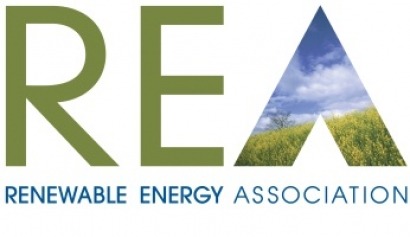
The Renewable Energy Association (REA) has welcomed Energy Secretary Ed Davey’s stance on biofuels at the European Energy Council. Mr Davey said that the idea of a one-size-fits-all approach to the issue of indirect land use change (ILUC) is not helpful. The proposals include an overall cap on the use of crop-based biofuels at 5 percent of transport. This would make the binding EU-wide 10 percent renewable transport target virtually impossible to achieve.
The UK biofuels industry has rallied to produce a paper on the proposals and so far, the UK is the first EU member state to produce such a unified industry position on the issue, with the REA, AIC, NFU and SCOPA representing the entire biofuels supply chain. The paper points out that the assumptions behind the proposals are based on a purely theoretical approach which does not take into account the realities of biofuel development. It also urges a dedicated target for 2 percent of transport fuel to come from advanced biofuels by 2020 allowing electric vehicles and conventional biofuels to make up the rest of the target.
The REA estimates that these proposals could cost the UK over £1 billion investments and up to 3,500 jobs. REA Head of Renewable Transport, Clare Wenner, commented:
“We welcome Ed Davey’s useful intervention at the European Energy Council. ILUC is a serious issue, but the debate about the sustainability of biofuels and their effect on food prices is fuelled more by emotion than science. We need strong representation to ensure the Commission delivers a framework which encourages the reinvestment of revenues from the first generation market into the development of advanced biofuels. We are working hard at home and abroad to inform decision-makers of the problems with these proposals, which not only threaten our climate change and renewable energy objectives, but over £1 billion of investment, and thousands of green jobs.”
Wenner joined the REA Chief Executive Gaynor Hartnell last week to discuss the ILUC proposals with MEP’s at the European Parliament where they explained the particular challenges that the UK faces in meeting its 2020 targets. The meeting was part of the ‘Keep on Track’ project which seeks to assess member states progress on their 2020 renewable energy targets. The REA is the UK partner for Keep on Track which is coordinated in Europe by the European Renewable Energy Council (EREC). EREC warned last week that while the EU is presently on track, policy shifts will make it difficult for many states, including the UK, to keep on track over the next few years.
The UK has the most challenging target in Europe, starting from one of the lowest bases. The REA estimates that meeting the target would create 400,000 green jobs and a turnover of £12.5 billion.
“Our renewable energy targets constitute a huge economic opportunity for the UK, with 400,000 green jobs up for grabs” said UK Keep on Track project leader Mike Landy. “However, there is a long way to go, and industry needs strong representation across heat, power and renewable transport if we are to achieve these challenging targets, and reap the economic and environmental benefits that they offer. We welcome Ed Davey’s contribution to the ILUC debate, and we echo the sentiments of our colleagues at EREC: rushed and ill-conceived policy reversals must not be allowed to derail our renewable energy objectives.”
The UK has the most challenging target in Europe, starting from one of the lowest bases. The REA estimates that meeting the 2020 targets would create an industry comprising 400,000 green jobs with a turnover of £12.5 billion [5].
Further information:
Renewable Energy Association (REA)
European Renewable Energy Council (EREC)

